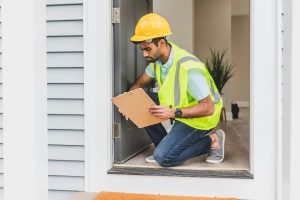Introduction
Imagine investing your hard-earned money into the perfect home, only to find it compromised by uninvited guests that burrow, gnaw, and wreak havoc behind the scenes. This is where a pest inspection becomes your frontline defence.
A building pest inspection is not just a routine check-up; it’s an essential probe into hidden corners and silent spaces of your property, seeking out critters that can cause extensive damage or present health risks. Whether you’re a new buyer, a seasoned homeowner, or looking to sell, understanding the significance of these inspections is crucial for safeguarding your investment and well-being.
Pests like termites alone cause billions in structural damage annually—a cost that’s preventable with diligent inspections. By identifying potential infestations early, you can save thousands on repairs down the line. So, when it comes to maintaining your home’s integrity and safety, consider a building pest inspection not as an option but as an indispensable tool.
The Key Role of Pest Inspections in Home Maintenance
Building pest inspections play a crucial role in home maintenance. They are often underestimated, but the potential consequences are significant. Let’s explore the three main reasons why these inspections are crucial:
Protecting the Property’s Structure: Pests, especially termites and beetles, can cause extensive damage to your home’s structure. They chew through wood, flooring, and even wallpaper without being noticed, which can result in expensive repairs or replacements if not dealt with promptly.
Preventing Health Risks: Some pests carry diseases that can be dangerous to your health. For example, cockroaches can trigger allergies and asthma, while rodents are known carriers of Hantavirus and other harmful germs. Regular pest inspections help ensure that your home remains a safe and healthy environment.
Maintaining a Safe Living Environment: Apart from health hazards, pests like spiders and bees can also be a safety concern with their painful bites or stings. By making sure your home is free from such pests, you create a secure living space for yourself and your family.
In summary, regular building pest inspections protect your investment by preventing severe damage and maintaining a safe and healthy living environment. So when you think about taking care of your home, remember the importance of dealing with the small creatures that may be causing trouble behind the scenes.
Understanding Pest Inspections: What You Need to Know
A pest inspection is a detailed examination of a property, specifically looking for bugs and creatures that could be harmful to the structure or pose health risks. When you schedule a pest inspection, expect a licensed professional to arrive equipped with specialised tools and expertise to detect the presence of unwanted pests.
How are pest inspections conducted?
Here’s an overview of the process:
Visual Inspection: The inspector looks for visible signs of infestation such as droppings, damage, and nests.
Full Property Check: Both the interior and exterior of the property are inspected, including hard-to-reach places like attics and crawl spaces.
Moisture Measurement: Inspectors may use devices to measure moisture levels in wood, which can indicate termite activity.
Comprehensive Report: After a thorough assessment, the inspector provides a detailed pest report with findings and recommended actions.
Common Types of Pests Checked During an Inspection:
During a pest inspection, these are some of the common pests that professionals look out for:
- Termites: Known for their ability to cause significant structural damage silently and quickly.
- Rodents: Mice and rats can chew through wiring and insulation, posing fire hazards.
- Cockroaches: These pests carry diseases and can trigger allergies or asthma.
- Bedbugs: Difficult to eradicate, they can cause distress with their bites and rapid reproduction.
- Bees and Wasps: Nesting in homes can lead to stings that are hazardous particularly to allergic individuals.
- Spiders: Certain species can be venomous, making them a concern for inhabitants.
The identification of these pests allows you to take timely action to mitigate any potential harm they could cause. By understanding how pest inspections work and what they entail, you equip yourself with knowledge that safeguards your home from hidden dangers.
The Potential Consequences of Ignoring Pest Infestations
Ignoring pest infestations can have serious consequences for both your property and health. It’s important to understand the significance of these risks.
1. Structural Damage
Pests like termites and carpenter ants are well-known for causing extensive structural damage to buildings. These small intruders can silently consume wooden beams, floors, and walls, compromising the stability of your house.
- Repairing pest-related structural damage can be extremely costly, often amounting to thousands of dollars. In severe cases, structures may become uninhabitable or even collapse due to weakened support systems.
2. Health Hazards
In addition to physical harm, pests also bring various health dangers:
- Rodents carry diseases such as Hantavirus and Salmonella.
- Cockroaches can worsen asthma and allergy symptoms.
- Some spiders and insects are venomous or can inflict painful bites and stings, resulting in medical emergencies.
Pests are often unnoticed until the harm has already escalated. Early identification through regular inspections is crucial in minimising these risks. Failing to do so not only jeopardises your home’s structure but also endangers the well-being of its occupants.
When Should You Consider Getting a Pest Inspection?
Determining when a pest inspection is needed can save you from future headaches and financial loss. Here are some key scenarios where scheduling an inspection is crucial:
- Mortgage Approval Requirements: Acquiring a mortgage often hinges on the outcome of various inspections, with pest inspections frequently being a condition of loan approval. Lenders may require confirmation that the property is free from infestations that could devalue the investment.
- Pre-Purchase Inspections: It is wise to conduct a pest inspection before finalising any home purchase. This proactive approach can bring to light hidden issues that could cost thousands in repairs down the line.
- VA Loans: For those obtaining VA loans, it’s common for lenders to mandate a pest inspection as part of their risk mitigation strategy. Notably, this requirement often falls on the seller to facilitate and fund.
- Seller Responsibilities: Even if not mandated by law, sellers aiming to establish trust with potential buyers can offer pest inspections as proof of their property’s integrity, thus potentially expediting the sale process.
Remember, pests can strike at any time, and regular inspections can be invaluable in preemptive home maintenance. Consider scheduling periodic pest inspections to ensure your property maintains its value and provides a safe environment for its occupants.
The Cost of Peace of Mind: Factors Affecting Pest Inspection Prices
Pest inspections are essential, but they do come with a price. The cost of pest inspections depends on various factors that we will discuss further.
Factors That Determine the Cost of Pest Inspection
1. Size and Location of Your Home
The size and location of your home play a significant role in determining the cost of pest inspection. Larger homes require more time and resources to inspect thoroughly. Similarly, if your property is located in a region known for specific types of pests, this may also influence the cost.
2. Presence or Absence of Crawl Spaces
The presence or absence of crawl spaces can affect the pricing. Homes with crawl spaces often demand higher inspection fees due to the extra labor involved in accessing these areas.
3. Extent of Infestation
The extent of infestation influences the final cost. Severe infestations necessitate more detailed inspections and possibly multiple visits, which can increase the price.
For budget-conscious homeowners, it’s vital to consider these factors when planning for a pest inspection. Here are some tips to manage your expenses effectively:
Tips to Manage Your Expenses Effectively
- Get multiple quotes: Don’t settle for the first quote you receive. By comparing prices from various professionals, you can ensure you’re getting a fair deal.
- Consider package deals: Some companies offer discounted rates when you combine pest inspection with other services such as home inspection.
- Maintain regular inspections: Regular checks can detect potential infestations early before they become severe and costly to address.
Remember that investing in a comprehensive pest inspection can save you from future repair costs amounting to thousands of dollars. It’s a worthy investment for your peace of mind and the preservation of your property’s value.
Choosing the Right Professional for the Job
When it comes to safeguarding your home from pests, selecting a qualified and licensed professional is crucial. Not all pest inspectors are created equal, and ensuring that you hire a competent individual can make a significant difference in the accuracy and thoroughness of your inspection. Here’s what you should consider when choosing a pest inspector:
Look for Qualified Individuals
- Experience: Seek out professionals with a solid track record. Years of experience often translate to a greater ability to identify and assess pest-related issues accurately.
- Expertise: The best inspectors have extensive knowledge about various types of pests and their impact on property structures.
Licensing is Key
Confirm that the pest inspector holds a current license. In many regions, this is not just an indication of professionalism but also a legal requirement.
- Regulatory Compliance: Licensed professionals are required to adhere to industry standards and regulations, providing you with services that meet legal expectations.
Reviews and Testimonials Matter
Prior customer experiences can offer valuable insights into the quality of service provided. Look for reviews or ask for testimonials.
- Referrals: Personal recommendations from friends or family can lead you to reliable inspectors they have worked with successfully.
Specialisation Could be Beneficial
Some inspectors might specialise in certain pests or types of inspections, which could be particularly advantageous if you suspect a specific problem.
By prioritising these qualifications for pest inspectors, you ensure that your home is evaluated by someone who performs pest inspections with the utmost professionalism. This diligence helps in detecting potential issues early, potentially saving you from expensive repairs in the future. Hiring licensed professionals affords you peace of mind, knowing that your property is in capable hands.
Remember to verify credentials and feel comfortable with the person you choose—after all, this individual will be responsible for identifying any threats to your home’s integrity and safety.
The Essential Role of Building Pest Inspections: Our Final Thoughts
Building pest inspections are crucial for maintaining your home’s structure and keeping its occupants safe. These inspections are essential for two main reasons:
- Early Detection of Threats: By identifying potential problems like termite damage or rodent infestations early on, you can prevent costly repairs in the future.
- Protection Against Health Hazards: Pest inspections help uncover any harmful infestations that may be compromising the well-being of those living in the house.
But it’s not just about saving money or avoiding health risks. It’s also about having peace of mind. Knowing that your home is free from destructive pests allows you to feel secure in your own space.
The Benefits of Understanding
Having a clear understanding of the process and significance of pest inspections can be incredibly valuable. It enables you to:
- Have Realistic Expectations: Knowing what to expect during an inspection can help you prepare mentally and emotionally.
- Make Informed Decisions: When buying a new home or applying for a mortgage, being aware of any existing pest issues gives you the power to negotiate or reconsider your options.
Making Inspections a Priority
Instead of viewing pest inspections as an expense, it’s helpful to reframe them as an investment. Here’s why:
- Protecting Your Property Value: Regular inspections ensure that any pest-related problems are addressed promptly, preserving the structural integrity of your home.
- Safeguarding Your Well-being: By proactively managing pest issues, you create a healthier living environment for yourself and your loved ones.
With this perspective in mind, here are our final words of advice:
- Don’t Wait for Signs: Be proactive in scheduling regular inspections, even if you don’t suspect any problems at the moment. Prevention is always better than cure.
- Take Action Today: Armed with the knowledge you now have, make that call and book an inspection. It’s a small step that can lead to significant long-term benefits.
Remember, your home is more than just a physical structure – it’s a sanctuary. By prioritising its well-being, you’re investing in the comfort and safety of those who live there.
Frequently Asked Questions
A pest inspection is a thorough examination of a property to identify any signs of pest infestations. It is crucial for homeowners to understand its significance because it helps in protecting the property’s structure, preventing health hazards, and maintaining a safe living environment.
Building pest inspections are important because they play a key role in protecting the property’s structure, preventing health hazards, and maintaining a safe living environment.
You need to know the definition of pest inspections, how they are conducted, and the common types of pests that are checked during an inspection.
Ignoring pest infestations can lead to significant risks such as severe structural damage to the property and various health hazards for occupants.
You should consider getting a pest inspection done during the mortgage approval process, seller responsibilities, and before purchasing a new home.
The average cost range of pest inspections can be influenced by various factors such as the size of the property, the type of pests being inspected for, and the location. Tips for managing the cost effectively include comparing quotes from different providers and considering bundled services.
It is important to hire qualified and licensed pest inspectors. Look for professionals who have experience in conducting thorough inspections and have the necessary certifications to perform the job effectively.
Homeowners should prioritise regular pest inspections as part of their home maintenance routine because it plays a critical role in saving them from costly repairs and ensures their peace of mind by maintaining a safe living environment.
Subscribe To Our Newsletter
Get updates and learn from the best
More To Explore

Common Issues Found by Private Building Inspectors in Adelaide
Investing in property is one of the most significant financial decisions you’ll ever make, and ensuring it’s a sound investment starts with a thorough inspection. Private building inspectors in Adelaide act as your trusted allies, uncovering hidden issues that could impact the safety, value, and longevity of your property. From structural defects and pest infestations

Why You Should Hire a Private Building Inspector Before Buying a property
Purchasing a property is one of the most significant investments you’ll ever make. Yet, beneath the surface of any potential dream home could lie hidden issues that threaten its value, safety, and liveability. This is where a private building inspector steps in—offering an in-depth, unbiased evaluation of the property to ensure you’re making a sound


